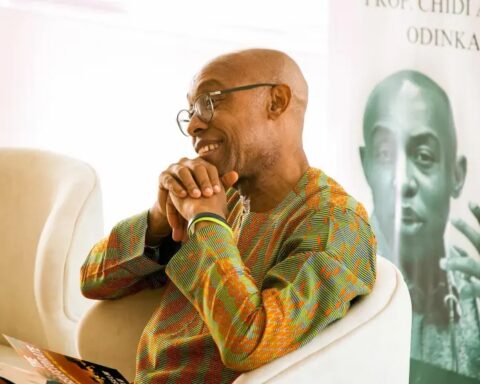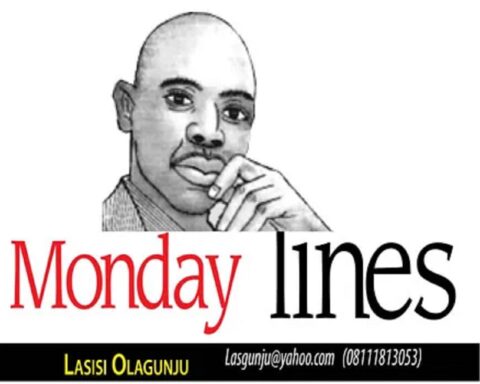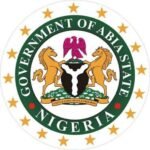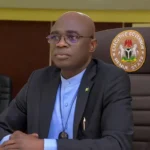By Kosoko Oyeyemi
Nigeria has an Igbo- hate problem. We never say it outright, but it hangs around every market fire, every election season, every sudden riot that starts as gossip and ends as ashes.
Yesterday morning, I drove to Ibadan. It was Sunday, that rare kind of Sunday when the Lagos-Ibadan expressway forgets itself and offers you mercy: no tankers squatting on the road, no angry horns, no crawling behind trailers for hours. Just open lanes and the low hum of tyres on fresh tar.
It felt almost peaceful. I let the car cruise at its own pace, windows cracked, radio on, one of those local stations that fill the quiet with people’s worries. The voice that came through was soft at first, then rose like a warning siren.
“These Igbo people,” the caller said, as if confessing a secret everyone knew. “They’re buying up all the land in Ibadan. Soon, we will be strangers in our own land. Tenants in our father’s house.”
There was no traffic jam, but I felt something tighten in my chest anyway. The host tried to laugh it off, that nervous laugh you hear when people want to sound neutral but secretly agree. Another caller joined in, louder, angrier. “It’s true o. They don’t stay in their place. Every market they control. Now they want to control the land too.”
I kept driving, but my mind stayed behind, stuck somewhere between that calm Sunday road and the old poison spilling through the airwaves. Because what I heard was not new. It is the same story dressed up in different clothes: suspicion that has outlived coups, outlived generals, outlived even the war that was supposed to be our final horror.
I reached Ibadan just as the city began to wake, the early sun picking out rooftops and hawkers arranging oranges by the roadside. But the caller’s voice stayed with me. Nigeria has an Igbo problem. We never say it outright, but it hangs around every market fire, every election season, every sudden riot that starts as gossip and ends as ashes.
And here’s the truth: it is not just the Igbo who pay the price for this fear. We all do. Every region, every tribe, every promise this country keeps breaking for itself.
This road was free this morning. But our fear keeps building new traffic in our hearts.

How did we even get Here in the first place?
There’s a scar on this country’s soul that refuses to heal. Older than my generation, older than the voice I heard on the radio that Sunday morning, older even than the idea of Nigeria itself. It is the wound of suspicion: the quiet, stubborn belief that the Igbo cannot simply be Nigerians like everyone else. That their drive must hide an agenda. That their ambition is a warning.
To trace this fear, you must go back to when Nigeria itself was barely a thought, drawn in ink by colonial hands that never imagined the blood those lines would cost. The Igbo, like many others, were folded into a country they did not ask for, next to people they barely knew. And yet, by the mid-twentieth century, something in them stirred fear in the heart of this new nation.
After independence, the Igbo spilled into cities: Lagos, Kano, Kaduna, Ibadan, and Port Harcourt. They carried with them more than goods to sell; they carried restless ambition, a faith in trade stronger than faith in government. They opened shops in strange towns, built houses where they spoke a different language, and contested elections in places far from ancestral soil. And they prospered, sometimes loudly, sometimes humbly, but always visibly.
To a new country still learning how to see itself, this visibility felt unsettling. How could people from a small corner of the East be everywhere? Why did they buy land so far from home? The questions were whispered at first. Then, suddenly, history handed the whispers something sharper.
January 1966: a coup, bloody and poorly executed, led mostly by young army officers who happened, largely, to be Igbo. It wasn’t, in truth, an “Igbo coup” not planned by the Igbo as a people, not supported by the East as a whole. But that’s not how stories work. In the North, it quickly hardened into certainty: the Igbo were trying to seize Nigeria. Months later, counter-coups followed, this time cutting down Igbo military leaders. But by then, the myth had already done its damage.
Then came the pogroms. Tens of thousands of Igbo men, women, and children were slaughtered in the North. Families were chased from homes they had lived in for generations. Survivors fled East, carrying with them nothing but the shock of betrayal and the bitterness of grief.
In May 1967, the Eastern region broke away, and Biafra was born. For thirty months, war turned markets into morgues, villages into ghost towns, and children’s laughter into the silence of hunger. By 1970, when Biafra fell, the government offered words that sounded like mercy: “No victor, no vanquished.” But the wound was too deep, too fresh, too poorly bandaged.
After the war, suspicion didn’t die. It went underground, became quieter, and in that quiet, it became more dangerous. Abandoned property decrees ensured that many Igbo who had fled never truly got their land or homes back. In offices and ministries, an Igbo surname became an unspoken disadvantage. And over the years, a stereotype slowly fossilised: clever, but dangerous; industrious, but untrustworthy; citizens, but only in theory.
This suspicion passed from father to son, mother to daughter. Not loudly, not as hate-filled slogans, but as cautious advice, whispered warnings, wary jokes. “Be careful with them,” a father might say. A landlord might hesitate before selling. A politician might lower his voice to speak of “those people.” And one morning, on an open Sunday road to Ibadan, you hear it on the radio, spoken so casually it sounds like someone discussing the weather.
And that’s when it becomes clear: the war ended, but the suspicion survived. And it keeps finding new ways to speak.
The story of land, movement, and the fear that turns citizens into strangers
If you really want to see the Nigerian economy as it truly breathes, don’t look to the polished glass towers of Victoria Island or the policy briefings in Abuja. Go instead to where engines cough awake before dawn, where the air smells of diesel, sweat, and hope. Go to Ladipo, to Alaba, to Onitsha Main Market, to Ariaria in Aba. Walk through narrow alleys stacked high with speakers, bolts of fabric, and auto parts arranged like broken altars. There, the heartbeat is loudest.
It is here that the Igbo spirit becomes visible, almost painfully so. In every trader who came to the city with a nylon bag, slept under a stall, and saved every naira until he opened his own shop. In the apprentice who spends seven years sweeping floors and fetching lunch, dreaming of the day the master will “settle” him to start his own trade. It is not just business; it is identity, almost religion. A stubborn faith that tomorrow can always be built, so long as your hands and mind stay restless.
And they do not stay put. The Igbo trader drifts wherever there is demand: Kano, Kaduna, Jos, Abuja, Ibadan. He learns enough of the language to bargain, enough of the culture to stay out of trouble. He sends money home to build houses, yet builds markets where he stands. Over decades, what starts as a single shop becomes a whole ecosystem: importers, repairmen, loaders, food sellers, transport unions, bus parks. The money circulates, and cities grow fat around these markets.
But visibility invites fear. What looks to the Igbo trader like hard-won prosperity can look, from the outside, like quiet conquest. So rumours sprout, as stubborn as weeds: “They want to take over.” “They don’t know their place.” And in a country where memory of betrayal lives close to the surface, suspicion finds easy ground.
Sometimes, suspicion becomes flame. A market burns in Kano, then again years later. In Lagos, demolitions come in the night, bulldozers moving like silent armies. In Port Harcourt, old certificates of occupancy vanish, replaced by new ones with new names. The traders rebuild each time, walls blackened by old fires, hearts hardened by older memories.
Yet still they stay. Because trade is more than livelihood; it is belonging. Because to leave is to become rootless, and even a restless people need roots somewhere. And perhaps because, deep down, they still believe in Nigeria — not the Nigeria of slogans and manifestos, but the Nigeria of customers who return each week, of neighbours who greet them by name, of cities built by many hands.
Even in fear, there is faith. Even in exile, a kind of home.

Which brings us to politics — and the missing presidency that still hangs over every conversation like a shadow
There is a silence at the heart of Nigerian politics, loud enough that we pretend not to hear it. It is the fact that in a country where every tribe claims its turn to rule, the Igbo have never truly had theirs.
Since 1966, soldiers dragged a young nation into the darkness of its first coup, no Igbo politician has walked into Aso Rock as president. Not by ballot, not by bullet, not by chance. In a country where power rotates like an old ceiling fan, the Igbo corner has remained still, collecting dust and resentment.
Every election cycle, the arguments come dressed in polite excuses: They don’t unite behind one candidate; they don’t build alliances; they ask too late. But beneath these answers lies a quieter truth: the suspicion that power in Igbo hands is dangerous.
It is not always spoken openly. It appears instead as a political calculation: give them Senate President, or the Deputy Speaker, but not the Presidency itself. It appears as deals made and unmade: support this candidate now, your turn will come. But the turn never truly comes.
The coup that happened long before most living voters were born remains an unspoken ghost at every negotiation table. The war that ended fifty years ago still votes in every backroom deal.
And so each cycle repeats itself. The East gathers in town halls, in cathedrals, in village squares. Elders beat their chests: This is our time. Young people whisper, This is our right. But the ticket goes elsewhere, to the North, to the West, to old familiar hands.
It is easy to think the cost is political, that it lives only in manifestos and power maps. But it lives in the human heart too, in the slow corrosion of faith. What does it do to a boy born in Enugu, a girl raised in Aba, to learn that they belong enough to vote, to pay tax, to build markets, but not enough to lead? What does it do to a country that calls itself one but always flinches at its own unity?
The cost is deeper than lost elections. It is lost trust. It is the cynicism that seeps into everything, that tells the young trader at Alaba or the civil servant in Umuahia that the country does not really want him, except to count him when the census comes. So he plans his exit. So he hides his money elsewhere. So he dreams of a passport that is not green.
And every time we pretend this is normal, this quiet exclusion hidden behind bright campaign posters, we remind ourselves that the war never really ended. It simply changed shape. From guns to ballots. From bullets to silence.
Fear and Loss: Who Pays the Price?
Fear is the quiet architect of this country. It draws invisible borders inside a single flag; it decides who can build, who must hide, and who is welcome only as a guest in the very place they call home. And nowhere does this fear live more stubbornly than in the shadow that follows the Igbo wherever they go.
Its cost is felt first in brick and naira: in empty plots of land in Ibadan where buildings might have stood, but did not, because a landlord could not silence the small voice asking, “What if they take over?” In warehouses never built in Kano, because a trader knows that fire comes easily when whispers start. In schools that never opened, factories that never broke ground, because someone, somewhere, could not trust too much, could not risk too much, could not hope too much.
But the deeper cost is harder to see because it does not live in numbers. It lives in the breath you hold when someone asks, “Where are you from?” In the moment a young Igbo man swallows his surname on a job application, unsure if it will close a door before he even knocks. It lives in the double life so many Igbo Nigerians are taught to live from childhood: belong fully, but never forget you are always an inch from being reminded that you do not.
And so they learn to fold ambition into caution. To register property in other names, to keep savings abroad, to hedge every bet with an exit plan. And outside eyes see only the surface cunning, calculation, never the long memory of a people taught, again and again, that what is built today can be taken tomorrow. That prosperity is never quite yours; that citizenship itself is always on probation.
This is the unspoken lesson suspicion teaches: that your neighbour’s success is your threat. And so every new market becomes a potential battlefield; every purchase of land becomes a rumour; every election becomes a referendum on who really belongs. And in this way, suspicion shrinks us all. It keeps our cities poorer, our politics narrower, our dreams smaller than they could be.
But it does more than shrink, it scars. It teaches the Igbo trader in Kano that no matter how many customers greet him daily, his shop can still burn because of words he never spoke. It teaches the landlord in Ibadan that selling land to an Igbo buyer is not just business; it is risk measured in side-eyes from neighbours, in whispers about loyalty. It teaches a young Igbo woman, born in Lagos, whose tongue carries the city’s slang, that her claim to home can still be challenged by someone whose family came two generations before hers.
And it teaches the rest of us, silently but surely, that the easiest way to belong is to distrust. That the surest way to feel secure is to keep someone else on the outside. That fear is cheaper than faith.
These lessons are passed quietly, from father to son, mother to child, neighbour to neighbour. Until one morning, on a clear Sunday drive, the road is empty but the airwaves are crowded with the same old dread: They are buying everything. They want to take over. Spoken not in rage, but in that calm, matter-of-fact tone that makes fear feel like common sense.
And so suspicion keeps building a country none of us truly owns. A place where everyone is waiting to run, and where the price of fear is paid not just by the Igbo, but by every dream deferred, every friendship left shallow, every home that feels a little less like home.
In the end, the real tragedy is that fear wins silently. Not with violence alone, but with quiet choices repeated a thousand times, until what could have been a nation becomes just a tense, uneasy arrangement, each group watching the other, hands never quite unclenched.

What can we do ?
Perhaps the hardest truth to admit is that suspicion did not fall on us like rain; we built it, stone by stone, until it became architecture. And what is built, stubbornly, deliberately, must be dismantled just as deliberately and at great cost. Because fear, once inherited, feels like common sense. It feels like love disguised as caution: fathers telling sons, “Be careful with them” not out of hate, but out of memory. Mothers telling daughters, “Marry your own”, not from cruelty, but from the quiet ache of a history that taught them how easily neighbours become strangers, how easily markets become ashes.
This is the first cruelty: that the past’s terror survives not in the mouths of politicians alone, but in the softest places, family tables, evening gossip, quiet prayers that say “protect us from them” without saying who them is. The longer we keep that silence, the more natural it becomes. And so suspicion becomes not just an attitude, but a tradition, passed down like an heirloom no one wants to admit they treasure.
To undo it, we must first break that silence. Not the shallow apologies of official speeches, but a raw remembering: to teach what happened, not as myth or as national shame alone, but as living memory. To tell our children, “We did this. We believed lies about our neighbours and we killed them. And when it ended, we pretended forgetting was forgiveness.” Because forgetting is cheap. Memory, real memory, costs — it humiliates, it opens the wound again, but it is the only way the wound can heal honestly.
But even that remembering is not enough, if it stays trapped in books and monuments. What must change is the quiet arithmetic of daily life: the moment a landlord hesitates to sell, the moment a bank clerk lowers their voice at a surname, the moment an editor cuts a line from a script because “people won’t like it.” It is in those small, daily choices that a nation is truly built or betrayed. Laws matter, policies matter, but they are only skin; the real disease lives deeper, in the soft tissue of who we trust and who we fear.
And perhaps that is the most frightening part: that suspicion is useful. It gives politicians an easy enemy; it gives neighbours an easy explanation; it turns complex failures into a single face we can blame. To let it go means living in a world without easy villains, a world where poverty is not caused by the tribe that built the market, where political betrayal is not explained by old conspiracies, where power must be earned not by dividing, but by persuading.
What would it look like to live in such a Nigeria? A country where an Igbo man buying land in Ibadan is met not with suspicion, but with congratulations, because every new home built, every market opened, is proof that the city itself is alive, that it still has room to grow.
A country where Biafra is not a threat to mention, but a tragedy to remember together, Muslims and Christians, Igbo and Yoruba and Hausa, as a warning of what we become when we choose fear over fellowship.
And maybe, too, it would be a Nigeria where the presidency stops being treated like a tribal inheritance, and starts to mean what it should: the right of any citizen, from any tongue, to ask the whole country for trust, and to be judged not by the accent in their name, but by the truth in their voice. That, too, would be costly: it would force each of us to give up the quiet power of saying “not yet, not you, not now.”
But the deepest cost would be this: we would have to imagine each other as fully human again. Not symbols, not threats, not clever traders or proud kings or silent herdsmen, but flawed, hopeful, frightened people, as capable of kindness as of cruelty. We would have to see in the Igbo trader not the rumour of conquest, but the familiar, stubborn hope that tomorrow might be better if today’s sweat is enough.
And this is the great irony: that what we call “the Igbo problem” has always been our own. Because fear shrinks the future. Suspicion strangles the possible. And every time we pass it on to the next generation, we make the borders inside our hearts thicker than the borders on any map.
To walk away from that inheritance will hurt. It will mean letting go of stories that comfort us, of fears that explain too much too easily. But perhaps that is the real work of nationhood: to love the country not for what it is, but for what it might still become and to love it enough to doubt the fear that built it.
Conclusion: The Road and What We Carry
By the time I drove into Ibadan that Sunday morning, the sun was already sitting gently on the rooftops. The road had been kind to me — no tankers pretending to sleep on three lanes, no drivers fighting for space where there was none. Just a clear stretch that felt, for once, like permission to breathe. But even in that soft quiet, the voice from the radio rode along with me, stubborn as a second shadow: “They are buying everything. Soon we will be strangers in our own land.”
It is not new, this fear. It is old enough to have grey hairs, old enough to speak through people who do not even know who taught them to speak this way. It slips into our conversations so easily, over plates of rice at weddings, over palm wine in backyards, over the soft hum of a car engine headed somewhere at dawn. It hides behind small jokes, cautionary tales, and half-remembered histories. It is not always shouted — more often, it hums quietly in our heads: “Be careful with them. Watch them. They want too much.”
And yet the real weight of it is not just what it says, but what it kills before it can live. The buildings never built because a seller changed his mind. The trust never given because a neighbour’s surname made someone uncomfortable. The friendships that stop at the fence. The businesses quietly split in two one half here, one half hidden overseas — because this country has taught some people that tomorrow might wake up hungry for your success. What kind of country keeps teaching its own children that safety means having one foot outside the door?
I often think about how this fear is not just an Igbo burden to bear. It is a tax we all pay, though some pay more in blood, in exile, in suspicion that clings no matter how much they bend to belong. And when you listen closely, you realise that this old fear is the biggest thing standing in the way of the country we keep claiming we want. Because no nation can grow bigger than its trust, no city can be truly alive if it is half-closed to the hands that want to build it.
I wish I could say the answer is easy, that a better president or a better policy will wash it away. But I know better. Fear does not die with a speech. Suspicion does not retire politely because a new anthem is sung. It goes when enough of us decide we are tired of carrying it around like an inheritance, tired of teaching our children how to suspect before they know how to believe.
Maybe it starts small. Maybe it starts in a car on a Sunday morning, with one person hearing that old lie on the radio and refusing to nod along. Maybe it starts with a landlord who sells the land without caring who plants on it. Maybe it starts with a neighbour who greets back, not because he has to, but because he wants to know who lives beside him. Maybe it starts with telling the truth about the war, about the pogroms, about abandoned, not to keep the wound fresh, but so that we can clean it properly, and maybe close it for good.
The road was clear that morning. And for a moment, it felt like a sign: that even the biggest, oldest traffic jam in this country, the one we keep inside our hearts, could clear too. Not by accident. Not by miracle. But by choice. By the slow, stubborn decision to see the person on the other side of suspicion not as a threat, but as proof that this country is still alive, still unfinished, still possible.
Maybe that is foolish. Maybe it will always be easier to stay afraid, to pass down the fear like family land. But as I turned off the radio and the city opened before me, markets waking up, churchgoers in white lace crossing the road, it felt, even if only for a moment, that we could choose something else.
That the story we keep telling, about land, about neighbours, about who belongs, does not have to end where it always ends. That what we call the Igbo problem has always really been a Nigerian problem: a wound we refuse to name because naming it would demand we do the hard work of healing.
And maybe the hardest, most hopeful thing of all is this: to accept that the road ahead will not clear itself finally. We have to clear it with truth, with memory, with the courage to love this country enough to share it.
The road to Ibadan was free that day. The bigger road, the one that matters, is still waiting for us.
Follow us on all social media platforms @dailyquery for news and analyses around the globe.


























